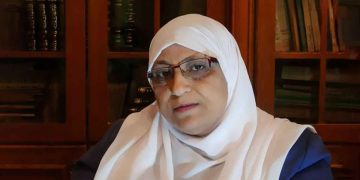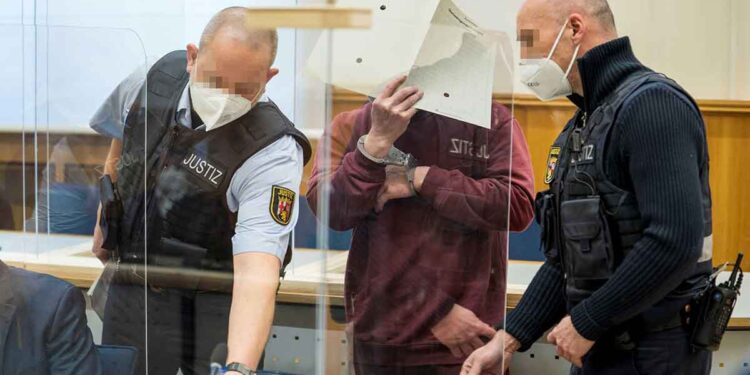For the first time, a German court has ruled in a case involving the crimes against humanity perpetrated by the regime. Eyad Al-Gharib, a former mid-level security official, was found guilty and sentenced to four-and-a-half years for his part in crimes against humanity committed in 2011.
Arab Organisation for Human Rights in the UK (AOHR UK) welcomes the court’s decision, and encourages further, similar prosecutions. The Assad regime’s blatant, long-standing, and systematic violation of basic international norms concerning the treatment of civilians cannot go unpunished.
Eyad Al-Gharib’s unit arrested anti-regime protestors in the city of Douma, Syria, in the autumn of 2011. The same unit then transported the arrestees to Al Khatib centre, or Branch 251, where they were tortured.
A seocond defendant, Anwar Raslan, another ex-official of the Syrian regime, is accused of overseeing the torture of detainees at the same prison.
The German prosecutors invoked the principle of universal jurisdiction for serious crimes. Syrian human-rights lawyer Anwar al-Bunni has been reported as saying, “History has been made”.

“The first verdict against a member of the Syrian regime’s torture and murder machine is a verdict against the whole regime, not just against one individual. It gives hope that justice is possible”, he continued.
The trial was the first time that the so-called “Caesar photos” have been presented in a court. The 50,000 images taken by a Syrian military defector, known as “Caesar”, show the bodies of 6,786 Syrians who had been tortured to death inside regime detention centres. Assad has himself dismissed the photos as forgeries. The AOHR UK welcomes the German court’s validation of them as evidence of crimes against humanity.
The German court’s decision follows multiple legal efforts against the Assad regime.
In May 2014, the UN’s security council discussed a resolution to refer Syria to the International Criminal Court. The resolution was vetoed by Russia and China. However, in March 2019 two lawsuits were submitted to the ICC on behalf of 28 Syrian refugees in Jordan. Their lawyers demanded that the court investigate possible crimes against humanity committed in Syria since 2011.
Hence, the AOHR UK reiterates its welcoming of the German court’s decisions, and its hope that both national and international courts build on its work.






























